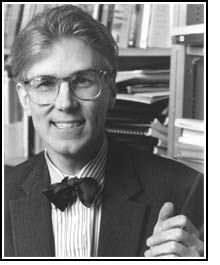|
RAY CARNEY Tel:
617-353-5976 |
Click here for best printing of text
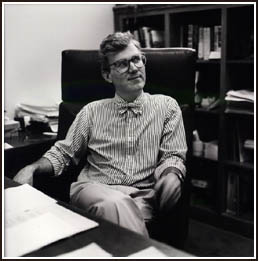 RAY
CARNEY received his A.B. from Harvard magna cum laude and his
Ph.D. from Rutgers (where
his dissertation -- on William Wordsworth's process of poetic composition in The Prelude, The Ruined Cottage, and The Lyrical Ballads -- was supervised by William Keach and read by Richard Poirier and Thomas Edwards) passing his oral
examination (conducted by Richard Poirier, Paul Fussell, and David
Kalstone) "With
Distinction." He also did separate periods of study with Philip Kapleau in Rochester, New York and Walter Nowick in Surrey, Maine. He has been an Assistant Professor of English in
the English Department of Middlebury College (teaching English and American
literature), William Rice Kimball Fellow at the Stanford University Humanities
Center (working on a project on
performance art and the intellectual background of the stand-up comedy
routines of Lenny Bruce, Jonathan Winters, and Richard Pryor among other
figures), and Associate Professor in the Humanities Program of the University
of Texas (teaching interdisciplinary American studies, focusing on the
relationship of nineteenth- and twentieth-century American art and philosophy).
RAY
CARNEY received his A.B. from Harvard magna cum laude and his
Ph.D. from Rutgers (where
his dissertation -- on William Wordsworth's process of poetic composition in The Prelude, The Ruined Cottage, and The Lyrical Ballads -- was supervised by William Keach and read by Richard Poirier and Thomas Edwards) passing his oral
examination (conducted by Richard Poirier, Paul Fussell, and David
Kalstone) "With
Distinction." He also did separate periods of study with Philip Kapleau in Rochester, New York and Walter Nowick in Surrey, Maine. He has been an Assistant Professor of English in
the English Department of Middlebury College (teaching English and American
literature), William Rice Kimball Fellow at the Stanford University Humanities
Center (working on a project on
performance art and the intellectual background of the stand-up comedy
routines of Lenny Bruce, Jonathan Winters, and Richard Pryor among other
figures), and Associate Professor in the Humanities Program of the University
of Texas (teaching interdisciplinary American studies, focusing on the
relationship of nineteenth- and twentieth-century American art and philosophy).
At Boston University he is Professor of Film and American Studies. For approximately ten years, he served as Director of the graduate and undergraduate Film Studies Programs and Chair of graduate admissions in Film Studies. He resigned in the summer of 2005. Click here to go to a description of the program during his tenure as Director.
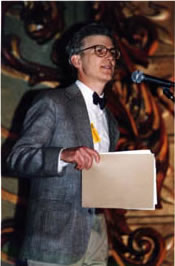 |
| Ray Carney at the Sydney Film Festival |
He teaches courses on American film, literature, and art (including painting, dance, drama, and philosophy); European art film; acting; and the relation of film and the other arts. Click here to see the syllabi used in some of Prof. Carney's film, literature, and other arts courses.
He is generally acknowledged to be the world's leading scholarly authority on American independent film and American art film. He has written extensively about the "off-Hollywood" movement, lectured at American and European film festivals and special events, and been interviewed about American independent filmmaking throughout the world. Professor Carney has appeared on radio and television in Europe, Asia, America, and Australia, and his books and essays have been translated into French, Spanish, Portuguese, Greek, German, Italian, Danish, Hungarian, Austrian, Korean, and Japanese. He has lectured on or moderated panel discussions about independent film at more than one hundred special events or screenings, speaking directly to more than forty thousand people in Europe, Canada, Australia, and the United States. Click here to go to the Independent Film Pages and read selections from Prof. Carney's lectures, interviews, and writing about independent film.
He is an expert on the life
and work of John Cassavetes. He knew the filmmaker personally and wrote
the first book ever devoted to his life and work. His books about Cassavetes
include: American Dreaming: The Films of John
Cassavetes and the
American Experience (University of California Press, 1985), The
Films of John Cassavetes: Pragmatism, Modernism, and the Movies (Cambridge
University Press, 1994), John Cassavetes: The Adventure of Insecurity
(Company C, 2000), 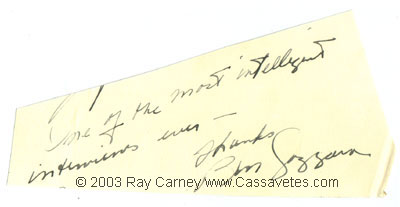 Cassavetes on Cassavetes (Faber and Faber/Farrar,
Straus and Giroux, 2001), the BFI Film Classics volume on Shadows
(British Film Institute Publishing, 2001), and A
Detective Story – Going Inside the Heart and Mind of the Artist: A Study of Cassavetes' Revisionary
Process in the Two Versions of Shadows, which greatly revises and
expands the material printed in the BFI volume. He also edited a coffee
table picture book devoted to Cassavetes in French: John Cassavetes—Autoportraits
(Paris: Editions de l'Etoile/Cahiers du cinema, 1992), and a study of
the films in Japanese: John Cassavetes: Men and Women in Love (Tokyo:
Keiso-Shobo, 1997). Neither of these last two books has yet been published
in English. He guest-edited and contributed extensively to the "John
Cassavetes Special Issue" published by Post-Script magazine
in 1992, and contributed to Film Comment's posthumous tribute to
Cassavetes in 1989. His memorial essay on the filmmaker, "The Adventure
of Insecurity: The Life and Work of John Cassavetes" was named co-recipient
of the prize for "best essay of the year by a younger scholar"
by The Kenyon Review in 1990. He is currently completing John
Cassavetes on Art and Life and John Cassavetes: A Life in Art, a critical
biography exploring the relation of Cassavetes' art and life. Click
here to go to the John Cassavetes Pages and read selections from Prof. Carney's
interviews and writing about Cassavetes.
Cassavetes on Cassavetes (Faber and Faber/Farrar,
Straus and Giroux, 2001), the BFI Film Classics volume on Shadows
(British Film Institute Publishing, 2001), and A
Detective Story – Going Inside the Heart and Mind of the Artist: A Study of Cassavetes' Revisionary
Process in the Two Versions of Shadows, which greatly revises and
expands the material printed in the BFI volume. He also edited a coffee
table picture book devoted to Cassavetes in French: John Cassavetes—Autoportraits
(Paris: Editions de l'Etoile/Cahiers du cinema, 1992), and a study of
the films in Japanese: John Cassavetes: Men and Women in Love (Tokyo:
Keiso-Shobo, 1997). Neither of these last two books has yet been published
in English. He guest-edited and contributed extensively to the "John
Cassavetes Special Issue" published by Post-Script magazine
in 1992, and contributed to Film Comment's posthumous tribute to
Cassavetes in 1989. His memorial essay on the filmmaker, "The Adventure
of Insecurity: The Life and Work of John Cassavetes" was named co-recipient
of the prize for "best essay of the year by a younger scholar"
by The Kenyon Review in 1990. He is currently completing John
Cassavetes on Art and Life and John Cassavetes: A Life in Art, a critical
biography exploring the relation of Cassavetes' art and life. Click
here to go to the John Cassavetes Pages and read selections from Prof. Carney's
interviews and writing about Cassavetes.
The opinion of Xan Cassavetes, John Cassavetes' daughter and the director of Z Channel and other works, about Ray Carney's Cassavetes on Cassavetes, as relayed to Carney by a friend in Los Angeles (stars indicate omitted personal material): "I
am still in LA, working on *** , which is coming along. Real
progress. This evening saw Z CHANNEL, a new documentary
by Xan Cassavetes. *** I spoke with her after the screening.
I thought you might like to know that she absolutely loves CASS
ON CASS. Says she sleeps with it. Says it's enabled her
to have conversations with her father she never had." |
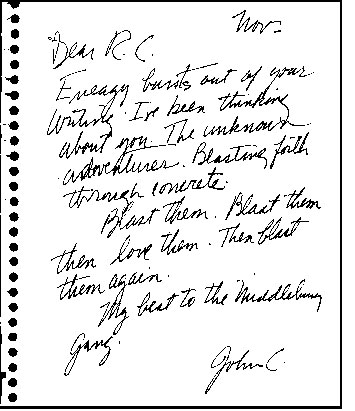 In 1989, he curated festivals
and moderated panel discussions about Cassavetes' work for the French-American
Film Workshop in Avignon and the Cinematheque Francaise in Paris. In
1989
and 1990, in collaboration with the Walker Art Center and the Pacific
Film Archive and University Art Museum at Berkeley, he presented the
fifteen-city
American tour of Cassavetes' films (the first time the complete films
were ever shown in a single program, not counting Prof. Carney's own
classroom
screenings of the works), wrote the souvenir program and individual screening
notes for each film in the tour, and introduced the films, lectured,
and
organized and led panel discussions at the various screening sites featuring
Cassavetes' friends and collaborators (Elaine May, Peter Falk, Seymour
Cassel, Al Ruban, Ben Gazzara, Jonas Mekas, Ted Allan, Sam Shaw, and
others).
In 1994, he hosted a reunion of the cast and crew of Shadows (including
Lelia Goldoni, Hugh Hurd, Maurice McEndree, George O'Halloran, and
others)
for a special screening and panel discussion of the Beat Film Festival
at New York University. In 1997, he organized and presented "Love
on the Edge," the six film touring retrospective sponsored by
Miramax, wrote the souvenir program to accompany the screenings,
and participated
in the celebrity panel discussion at the Paris Theater in New York
(featuring Peter Bogdanovich, Sam Shaw, Al Ruban, and others).
In 1989, he curated festivals
and moderated panel discussions about Cassavetes' work for the French-American
Film Workshop in Avignon and the Cinematheque Francaise in Paris. In
1989
and 1990, in collaboration with the Walker Art Center and the Pacific
Film Archive and University Art Museum at Berkeley, he presented the
fifteen-city
American tour of Cassavetes' films (the first time the complete films
were ever shown in a single program, not counting Prof. Carney's own
classroom
screenings of the works), wrote the souvenir program and individual screening
notes for each film in the tour, and introduced the films, lectured,
and
organized and led panel discussions at the various screening sites featuring
Cassavetes' friends and collaborators (Elaine May, Peter Falk, Seymour
Cassel, Al Ruban, Ben Gazzara, Jonas Mekas, Ted Allan, Sam Shaw, and
others).
In 1994, he hosted a reunion of the cast and crew of Shadows (including
Lelia Goldoni, Hugh Hurd, Maurice McEndree, George O'Halloran, and
others)
for a special screening and panel discussion of the Beat Film Festival
at New York University. In 1997, he organized and presented "Love
on the Edge," the six film touring retrospective sponsored by
Miramax, wrote the souvenir program to accompany the screenings,
and participated
in the celebrity panel discussion at the Paris Theater in New York
(featuring Peter Bogdanovich, Sam Shaw, Al Ruban, and others).
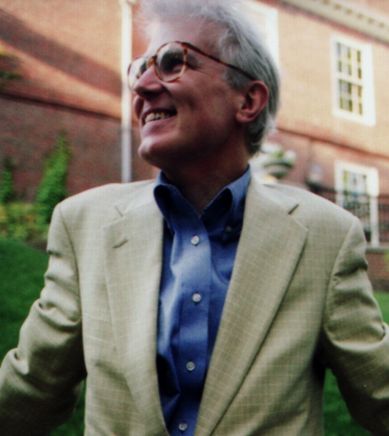 |
| Photo of Ray Carney by Randy Walker, 2007 |
In 1999, he presented "An Evening with John Cassavetes" for the Danish Film House in Copenhagen, Denmark and toured Australia as a representative of the U.S. Department of State and a guest of the Sydney and Melbourne Film Festivals, speaking to more than ten thousand people in Sydney, Canberra, and Melbourne about Cassavetes' work and American independent film. In 2000-2001 he toured a number of film archives presenting a video show titled "The Unknown John Cassavetes," screening unreleased, unknown, and otherwise unavailable films and videotapes from his private collection showing Cassavetes acting, rehearsing actors, and talking about his work. In November 2001, he conducted a one hour on-stage interview with Gena Rowlands in front of 1000 people as the opening night event for the Virginia Film Festival and participated in a six-day retrospective of her work which she attended and introduced. In January 2003, he conducted the first East Coast screening of the restored UCLA print of Shadows at the Coolidge Corner theater in Boston, and conducted an on-stage interview with Tony Ray about the making of the film to a standing-room-only, turn-away audience.
Prof. Carney has also advised or curated screenings at a number of major arts institutions, museums, and film archives in America and Europe. He recently advised and provided otherwise unavailable, unpublished Cassavetes script material to Ivo van Hove and Toneelgroep Amsterdam (the Dutch National Theater Company) for planned future dramatic adaptations of John Cassavetes' films to the stage. He has also advised, curated, and introduced major film programs for the Harvard University Film Archive, most recently a series of screenings devoted to showcasing the work of "emerging or undiscovered new talents" in film. Click here to read the program notes he wrote for the summer 2007 screening series: "Independents Week."
The opinion of Harmony Korine, writer-director of Kids, Gummo, Julian Donkey-Boy about Ray Carney's Cassavetes on Cassavetes: "THE
BEST FILM BOOK EVER WRITTEN." |
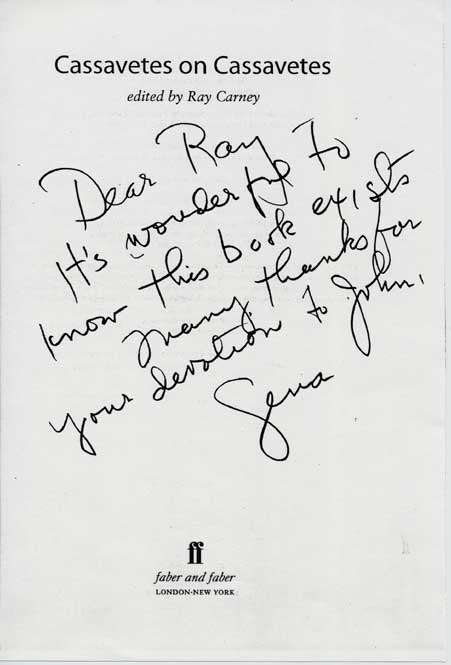 Ray
Carney has also made a name for himself as the discoverer, presenter,
and popularizer of dozens of new, unknown, or lost works of art. There
are too many instances to cite more than a few representative examples.
As a graduate student, he discovered a previously unknown source for
the first five books of William Wordsworth's poetic masterpiece, The
Prelude in Reverend Joseph Simpson's Science Revived,
or The
Vision of Alfred, a forgotten Augustan epic. When he curated the
Beat show for the Whitney Museum of American Art, Prof. Carney discovered
and
screened a major new work that had not been seen in more than forty
years: Frank Paine's Motion Picture, a film which had never
been written about before. (Click here for more information about that
work.) He
has discovered, introduced early screenings of, or brought to public
attention previously unknown or neglected works by many American independent
filmmakers, works which are now recognized and appreciated because
of his championing of them – including films by Morris Engel,
Lionel Rogosin, John Korty, Barbara Loden, Robert Kramer, Gordon Erikson,
Charles Burnett, Mark Rappaport, and Caveh Zahedi.
Ray
Carney has also made a name for himself as the discoverer, presenter,
and popularizer of dozens of new, unknown, or lost works of art. There
are too many instances to cite more than a few representative examples.
As a graduate student, he discovered a previously unknown source for
the first five books of William Wordsworth's poetic masterpiece, The
Prelude in Reverend Joseph Simpson's Science Revived,
or The
Vision of Alfred, a forgotten Augustan epic. When he curated the
Beat show for the Whitney Museum of American Art, Prof. Carney discovered
and
screened a major new work that had not been seen in more than forty
years: Frank Paine's Motion Picture, a film which had never
been written about before. (Click here for more information about that
work.) He
has discovered, introduced early screenings of, or brought to public
attention previously unknown or neglected works by many American independent
filmmakers, works which are now recognized and appreciated because
of his championing of them – including films by Morris Engel,
Lionel Rogosin, John Korty, Barbara Loden, Robert Kramer, Gordon Erikson,
Charles Burnett, Mark Rappaport, and Caveh Zahedi.
Prof. Carney's writing on John Cassavetes, particularly in his Cassavetes on Cassavetes and Shadows books (click here for information about the first book and here for information about the second) has brought to light hundreds of previously unknown facts and events about the life of the filmmaker and completely changed the understanding of the production history of his work. Prof. Carney is the first writer to have told the complete behind-the-scenes stories of the making of all of Cassavetes' films. His greatest intellectual coup was to recount the previously unknown story of the production history of the two versions of Shadows. To the surprise of the world, he revealed that—in direct contradiction of the statement that ends the film about its being "improvised"—Cassavetes employed screenwriter Robert Alan Aurthur to "story doctor" the second version and write a series of scenes to be inserted into the movie. Many of these facts were revealed to Carney by Cassavetes himself in a "Rosebud" conversation shortly before his death as well as through interviews with the actors and crew members of the various works in the final years of their lives.
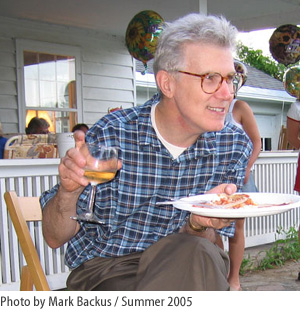 With
the assistance of the Museum of Television and Radio and, in many cases,
in collaboration with Jane Klain, Manager of Research Services, Prof.
Carney has also discovered and revived many unknown or forgotten early
television works in which Cassavetes appeared, including his virtuosic
one-man performance piece on Quest's Flip Side (which was never
broadcast in U.S.), his acting and directing work in Johnny Staccato
(including the remarkable Double Feature episode where Cassavetes
plays two roles at once) and The Lloyd Bridges Show, his zany,
over-the-top performance in S. Lee Pogostin's "Free of Charge,"
and his acting in many other otherwise lost or forgotten television series
like Burke's Law, Bob Hope Presents the Chrysler Theater,
and Columbo. Prof. Carney has organized and presented the first
public screenings of many of these works in recent years as well as screenings
of other works by Cassavetes that have never been broadcast on television
or released in theaters. For film festivals and archives, he has put together
a screening event of his favorite pieces, which he calls "The Unknown
John Cassavetes," and which has drawn rave reviews and standing-room-only
crowds. (Click
here to learn about an upcoming series of screenings of some of these
works curated by Allen Glover at the Museum of Television and Radio. And
click
here to read more of Prof. Carney's discussion of Cassavetes' acting
work in television and film and some of the screening events Prof. Carney
has personally organized and presented.) The revised edition of his Cassavetes
on Cassavetes has the most complete discussion of Cassavetes' television
work ever assembled. (Click
here to find out how to obtain this book.)
With
the assistance of the Museum of Television and Radio and, in many cases,
in collaboration with Jane Klain, Manager of Research Services, Prof.
Carney has also discovered and revived many unknown or forgotten early
television works in which Cassavetes appeared, including his virtuosic
one-man performance piece on Quest's Flip Side (which was never
broadcast in U.S.), his acting and directing work in Johnny Staccato
(including the remarkable Double Feature episode where Cassavetes
plays two roles at once) and The Lloyd Bridges Show, his zany,
over-the-top performance in S. Lee Pogostin's "Free of Charge,"
and his acting in many other otherwise lost or forgotten television series
like Burke's Law, Bob Hope Presents the Chrysler Theater,
and Columbo. Prof. Carney has organized and presented the first
public screenings of many of these works in recent years as well as screenings
of other works by Cassavetes that have never been broadcast on television
or released in theaters. For film festivals and archives, he has put together
a screening event of his favorite pieces, which he calls "The Unknown
John Cassavetes," and which has drawn rave reviews and standing-room-only
crowds. (Click
here to learn about an upcoming series of screenings of some of these
works curated by Allen Glover at the Museum of Television and Radio. And
click
here to read more of Prof. Carney's discussion of Cassavetes' acting
work in television and film and some of the screening events Prof. Carney
has personally organized and presented.) The revised edition of his Cassavetes
on Cassavetes has the most complete discussion of Cassavetes' television
work ever assembled. (Click
here to find out how to obtain this book.)
Most recently, Ray Carney made two of the most important film discoveries of the past one hundred years. He located one of the long prints of Cassavetes' Faces and two years later, after seventeen years of searching, in November 2003 found the legendary lost first version of Cassavetes' Shadows, a completely different film from the known version – in effect adding a new first film to Cassavetes' body of work and an important new work to the canon of American independent film. In January 2004, he unveiled the discovery at two standing-room only screenings at the Rotterdam International Film Festival in the Netherlands. The screenings attracted critics, reviewers, and scholars from around the world, and the discovery has been written up in more than 100 newspapers and magazines from Japan to Italy to the U.K. (although very little has been written about it in the U.S. where Hollywood values and interests prevail even in so-called serious cinematic writing). Prof. Carney has been besieged with requests to show the print in England, Europe, Asia, and the Far East. As part of the announcement of the discovery, he published a long piece in the London Guardian describing the quest and was interviewed by more than 20 European publications. For more information about each of these major cinematic discoveries, click on this link for Faces and this link for Shadows.
Prof. Carney recently made yet another major Cassavetes cinematic discovery that is still under wraps. It will be announced to the world in a few months. (You read it here first. This is the only notice that is being published anywhere – your reward for reading this page! Stay tuned for more information when it is released. It will appear here. Click here to read a bit more information connected with this subject.)
Professor Carney has published a number of other books on art, film, criticism, and culture. They include The Films of Mike Leigh: Embracing the World (Cambridge University Press, 2000). Click here to read about it. American Vision: The Films of Frank Capra (Wesleyan University Press, 1996). Click here to read about it. Speaking the Language of Desire: The Films of Carl Dreyer (Cambridge University Press, 1989). Click here to read about it.
He has also written: Why Art Matters: A collection of essays, interviews, and lectures on life and art; Necessary Experiences – What art can show us about ourselves and our culture; and What's Wrong with Film Courses, Film Criticism, and Film Reviewing – And How to Do It Right. Click here and here to read excerpts from those books.
He has also published general-interest critical and cultural pieces in a variety of national magazines and journals, including The New Republic, Partisan Review, The Georgia Review, The Chicago Review, Raritan Review, The Boston Phoenix, The London Times, and Film Comment. Interviews with him have appeared in many national and international magazines, including: Switch (Tokyo), Visions (Boston), The Christian Science Monitor, and The Baffler (Chicago). He has written about independent film and the "boutiquing" of the independent movement for MovieMaker magazine for more than ten years, contributing the two-part "Fake Independents and Reel Truth," the three-part "The Path of the Artist," and the two-part "Art, Life, Hollywood, Independent Film, Critics, Professors, and How to Make a Fortune in Real Estate." Click here and here to read excerpts from these pieces.
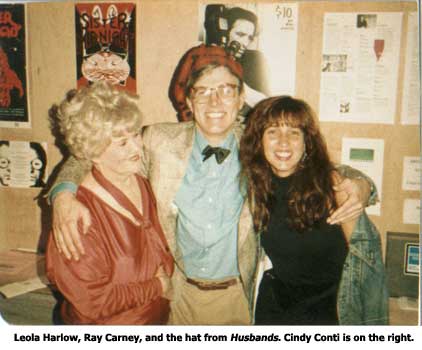 Professor Carney is the General
Editor of The Cambridge Film Classics (fifteen volumes published or in
press). He was a scholarly advisor for and appeared on camera in The
American Cinema, the ten-part television series broadcast on PBS in
the spring of 1995 and rebroadcast several subsequent times. He co-curated
and contributed three essays to the catalogue of the Whitney Museum's
Beat Culture and the New America 1950-1965, show that opened in
New York in 1995 and traveled to Minneapolis and San Francisco in 1996.
Click
here to read excerpts from the catalogue.
Professor Carney is the General
Editor of The Cambridge Film Classics (fifteen volumes published or in
press). He was a scholarly advisor for and appeared on camera in The
American Cinema, the ten-part television series broadcast on PBS in
the spring of 1995 and rebroadcast several subsequent times. He co-curated
and contributed three essays to the catalogue of the Whitney Museum's
Beat Culture and the New America 1950-1965, show that opened in
New York in 1995 and traveled to Minneapolis and San Francisco in 1996.
Click
here to read excerpts from the catalogue.
He has served as a consultant on film and American art for the Walker Art Center, the Whitney Museum of American Art, the Museum of Modern Art, National Public Radio, and numerous television programs and newspapers. He is a charter member of the advisory board of the Boston Film Festival and is the founding presenter of the festival's annual "Independent Filmmaker" award and moderator of the panel discussion. He has programmed films for, advised, or lectured at numerous national and international film festivals, including the Sydney Film Festival (Australia), Festival de San Sebastian (Spain), the Rotterdam Film Festival, the Berlin Film Festival, the Sundance Film Festival (Park City), The San Francisco Film Festival, and the USA Film Festival (Dallas), the Virginia Film Festival, the Denver International Film Festival, the Olympia Film Festival (Washington), and too many others to list.
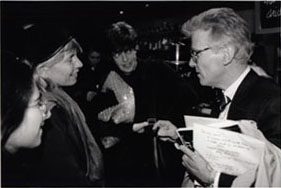 |
| Ray Carney in Melbourne Australia |
In the areas of literature and culture, Professor Carney has edited literary editions of Henry James' What Maisie Knew and The Spoils of Poynton (New American Library); Henry Adams' Mont Saint Michel and Chartres (Viking Penguin); and Rudyard Kipling's Kim (New American Library). He contributed a major essay on pragmatic aesthetics, "Two Forms of Modernism: Pragmatic and Visionary," to Townsend Ludington's An American Mosaic: Modernism in the United States (University of North Carolina Press, 2000). His contribution to Morris Dickstein's The Revival of Pragmatism: New Essays on Social Thought, Law, and Culture (Duke University Press): "When Mind is a Verb: Thomas Eakins and the Work of Doing," was singled out for special praise in the April 1999 New York Times Sunday Book Review discussion of the volume by Alan Wolfe.
In addition to the two Cassavetes books, he is currently completing three other books: a critical history of American independent filmmaking, The Real Independent Movement – Beyond the Hype; a study of late nineteenth- and early twentieth-century American painting and its relation to pragmatic aesthetics; and a volume on Henry James' late fiction.
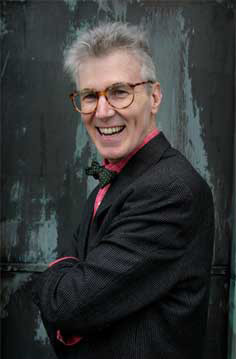 |
| Ray Carney at the Rotterdam Film Festival Photo by Anke Teunlssen (Amsterdam) / January 2004 |
Between 1999 and 2002, Ray Carney served as the official scholarly advisor for Charles Kiselyak's recently released documentary about the life and work of John Cassavetes, A Constant Forge. Prof. Carney did the scholarly research for the film, located unknown documentary material used in it, and wrote the script for the voice-over commentary (impersonating the voice of John Cassavetes). To read more about the production history of this project and Professor Carney's view of its value, click here. In 2004, he devoted eight months and more than 300 hours of his time to serving as the scholarly advisor to the Criterion Collection for the John Cassavetes, box set of DVDs. He helped in the planning of the entire box set and advised Criterion with the choice of prints (succeeding in getting both versions of The Killing of a Chinese Bookie included, and unsuccessfully attempting to include the first version of Shadows, the entire long version of Faces, and outtakes he located from Opening Night). Some of these inclusions were vetoed by Gena Rowlands. He also located rare photographs and documentary film material included on the disks, did a voice-over disk commentary, and wrote for the booklet that accompanies the set. (Late-breaking news: Click here for a recent update about the status of this project.)
His web site: www.Cassavetes.com has more information about his career and publications.
He freelances for a fee as a confidential script consultant and advisor to a number of actors and directors in New York and Los Angeles and may be contacted at raycarney@usa.net.
He is an avid, insane, fanatical blader (Coyotes, Outbacks, and Crosskates), biker (off-trail), kayaker (expedition touring), runner and hiker, and skier (cross-country). His "strictly for fun" activities on rainy nights involve reading Balzac or Proust, teaching himself molecular biology, or listening to Bach (slowly, haltingly working his way, note by note, page by page through the wonders and mysteries of the Johann Sebastian Bach's Werke. Bach-Gesellschaft zu Leipzig edition).
Note: New visitors seeking an overview or quick introduction to the site are recommended to go to the Mailbag pages by clicking on the blue ticket icon in the left menu of this page (and most other pages), by clicking on the Mailbag listing in the top menu of this page, or by clicking here. The Mailbag pages include comments about recent films and filmmakers, suggestions for dealing with filmmaking and distribution problems, and updates and reflections on a range of recent issues, including Gena Rowlands's and Al Ruban's attempts to suppress Ray Carney's artistic discoveries. The letters to Prof. Carney and his responses in the Mailbag link directly to many of the most important areas of the site and the final eight or ten pages of the Mailbag in particular discuss and offer links that go to the most recent material posted on the site.
For a list of websites with material by or about Ray Carney, click here.
High-resolution JPG images of Prof. Carney are available here.
The preceding is an overview of Ray Carney's life and work. To buy any of the books or articles mentioned, please go to the Bookstore section of the site by clicking here.
